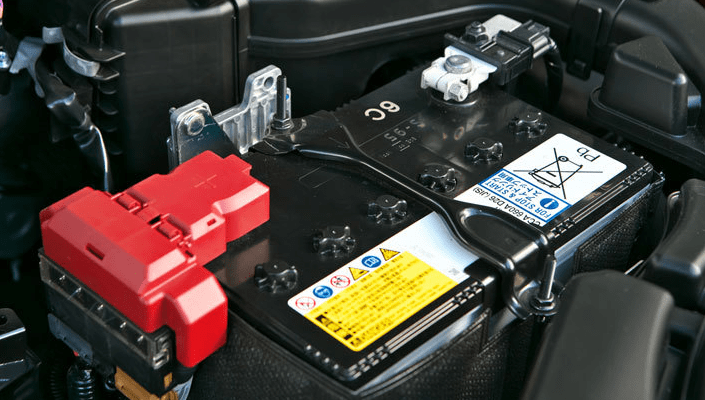5 Reasons car battery not charging
We can use a car battery for a long time because the car has a charging system that will fill the electrical energy into the car battery when the engine is running. Along with the usage period, the charging system and the battery itself will face problems. It can be the cause of why the engine cannot start, or the car battery indicator lamp is lights on.
So what are the causes of this car battery not charging? Below are the reasons for the car battery not charging.
1. Failure alternator drive belt
Failure alternator drive belt can be a problem caused for the car battery not charging. The alternator works when the pulley spins together with the engine rotation by a drive belt (called an alternator belt or serpentine belt).
The alternator drive belt connects between the crankshaft pulley and the alternator pulley. When the engine is running, the alternator works on and charges the car battery. Suppose the alternator drive belt failure happens, such as broken, loose, or detached from the pulley. In that case, the alternator cannot work properly to charge your car battery.
For many cases, this failure alternator drive belt will affect the car battery indicator lamp in your dashboard panel. The battery indicator lamp lights on, or it's blinking.
2. Blown fuse for the alternator or charging system
If your car battery is not charging, the next cause is a blown a fuse for the alternator or charging system. This fuse is generally located in the fuse box in the engine compartment. Still, some cars also place it near the positive battery terminal.
The size of this charging fuse generally varies in each car. However, it usually has a size above 60 amperes. This fuse connects the charging electric current between the alternator and the battery. If this fuse is blown and broken, the alternator cannot charge the battery. The blown fuse also makes the battery indicator lamp lights on.
3. Faulty alternator
A faulty alternator may be the most common problem caused for the car battery not charging. The alternator is the main component of the car charging system to generate electric currents to use on vehicles or charge the battery. If it's failed, then the alternator will not charge the car battery.
A faulty alternator makes the battery indicator lamps lights on, and your car will not survive longer. The electric power inside the car battery will quickly run out and make your car stop running.
Read also:- #5 Signs of car alternator problems
- My car battery low voltage, what this mean?
- How to test an alternator without multimeter?
- Smoking car battery causes
4. Poor connection on charging wiring harness
Car battery not charging can happen if they're poor connection on charging wiring harness. The most common is from corroded battery terminals. You will see a white and blue powdery crap covering both battery terminals. Suppose these things spread up on your car battery terminals. In that case, this makes the poor connection between the cables and the battery itself.
The other common thing is the alternator socket and terminal. Usually, the car battery does not charge because the terminal and the connector on the alternator socket have started to lose due to rust. It causes poor connection on the charging wiring harness. As a result, your car battery not charging.
5. Dead battery
The dead battery is also the most common problem caused for the car battery not charging. The dead battery usually occurs as a result of the wear of the battery. Generally, the use of car batteries can last 2-4 years. Moreover, we must replace the car battery.
In the dead battery, the components of the battery have begun to decay and fade. It makes converting electrical energy from chemical to electric power, and vice versa, no longer working entirely.
As a result, the process of storing electrical energy flowing from the alternator to the battery becomes useless. The battery cannot hold the electric power. It is what causes why the car battery is not charging anymore.
